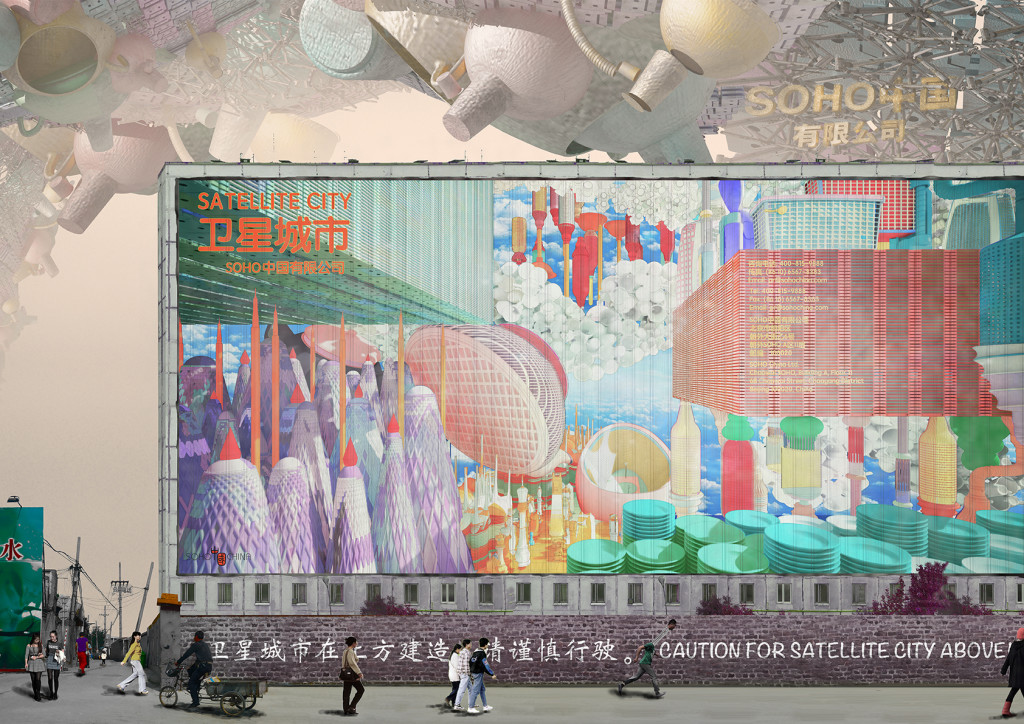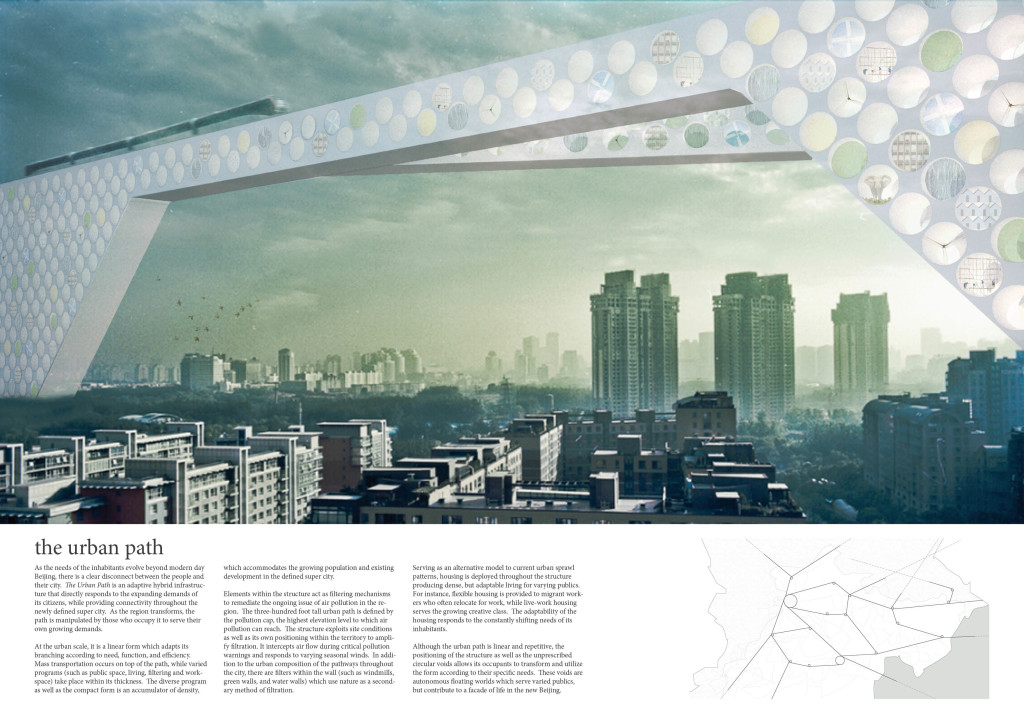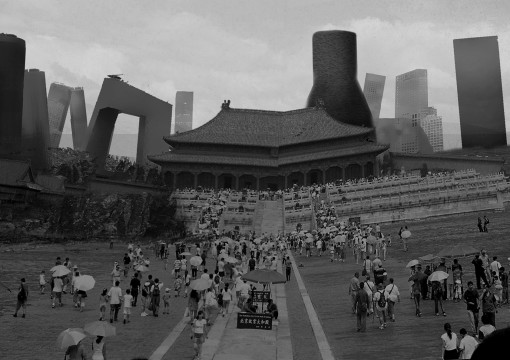Info:
Title: Case CCT 96/10 - Code: 85b52Contest: Beijing / 2014
By: Patrick Geske - Chuck Diep - Elena Larionova - Kazuhiro Okamoto
Views: 3640 Likes: 2
Votes:
Greg Lynn 7 Ai Weiwei 5 Sou Fujimoto 3 Eric de Broches des Combes 75.5
Case CCT 96/10
Six months ago, my brother moved to Beijing. He works as an engineer, and he asked to get transferred there so he could be with his girlfriend. His term of his stay is two years. I’ve never been there – by which I mean: we. We’ve never been there. My brother writes me: The issues that a city must attend to are specific to that individual city. But the issues that a Global City must face are the same in every global city. In Beijing, you learn palpably what overcrowded means. He writes me: Here, time moves differently. Sometimes it seems not to. Walking home from the train the other day against a crowd of people, the smog got to be so thick that I couldn’t tell if it was still day, or if it was white-blue streetlights beaming down, obscuring the darkness. I write my brother: Time moves differently everywhere, for different reasons. Don’t you, however, sometimes get the feeling that all those unique versions of time are slowly falling into sync? Everything that happens 800 years from now has already started. I write him: We have more difficulty understanding the linearity of time. We see that it is not a flow. It is, in fact, information. The world is an archive, and time is the speed at which new information can be added. A chain of events 800 years long will be archived and accessible. History IS continuous. It is made up of surges and slips. Ruptures are a violation of productivity and are outmoded. Conflict resolution consists in analyzing archival information in the effort to provisionally avoid disturbances to the system. Slips, when they do happen, do not cause rupture. There is no void. The void is mended before it has begun. Extinction, in other words, is circumvented. Yet the effects of its presence are woven into the fabric. What is artifacted from the slip is a distortion of the prior condition. The ground swells, takes a new form, and accommodates change. A new ground emerges from underneath. He writes me: We do not remember; we rewrite memories much as history is rewritten. The archive, on the other hand, remembers exactly. When, after the amassing of centuries’ worth of data, combined with an ability to access that data – linking all of the connections – the archive will virtually rewrite the future. Is that, perhaps, why we tend to begrudge the archive its exacting memory?








